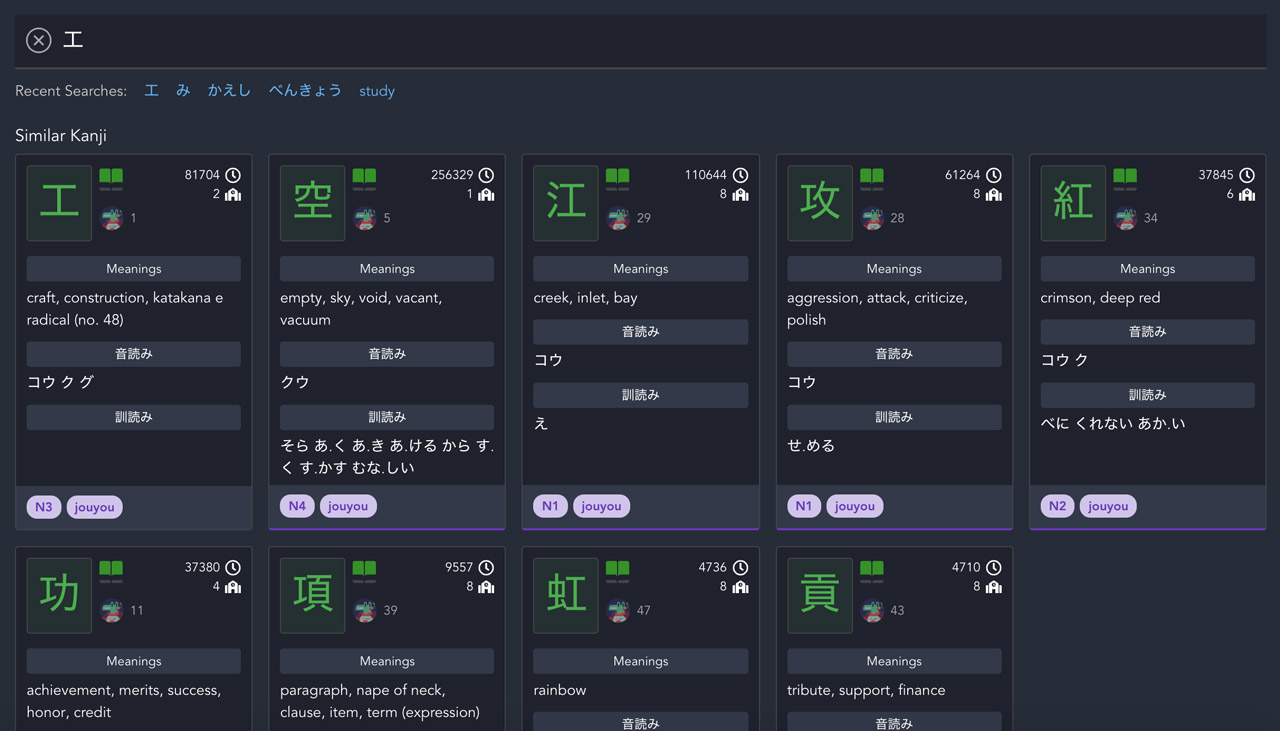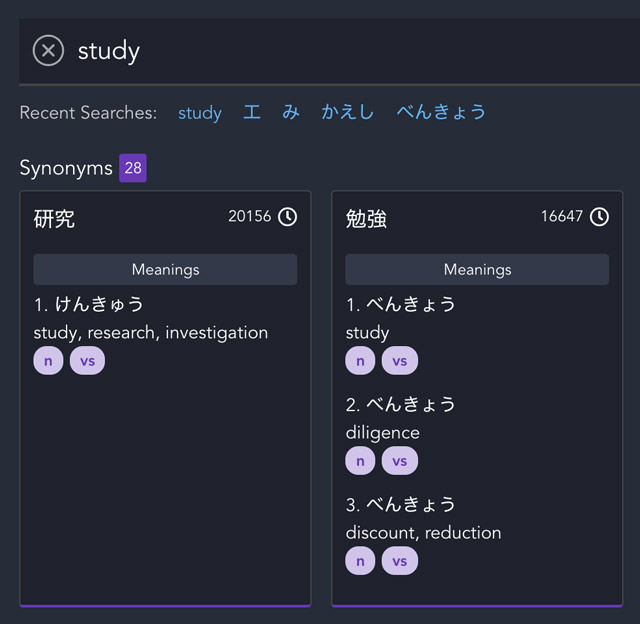
While Niai works somewhat like other online dictionaries, its purpose is to identify similar kanji, synonyms, and homonyms. That way, when you see, hear, or read a word in Japanese, you can use Niai to learn related items that may be getting mixed up in your head. Pretty handy.

Look up a kanji in Niai, and you'll likely see a number of similar kanji, complete with extra info: meaning, reading, frequency, school grade, JLPT and WaniKani levels, and Jisho link. The best part? All this is laid out on convenient cards, making it easy to compare information side-by-side.
For example, if you search for 功, you'll see similar kanji with the radical 工 and notice that all the on'yomi for these kanji can be read as コウ. Helpful! As with other online dictionaries, you can discover similar synonyms and homonyms by searching for English meanings or Japanese readings in hiragana.
Sometimes you won't get a similar kanji you're expecting, or you won't get any similar kanji at all, even though they share the same radical. When I searched for 刊, for example, all the results shared the 干 radical, but none had 刂.
That said, Niai is very useful, and what it does provide is helpful. Its layout alone is worth a visit, as is the hour you'll spend tumbling down its related-kanji-synonym-homonym rabbit hole!